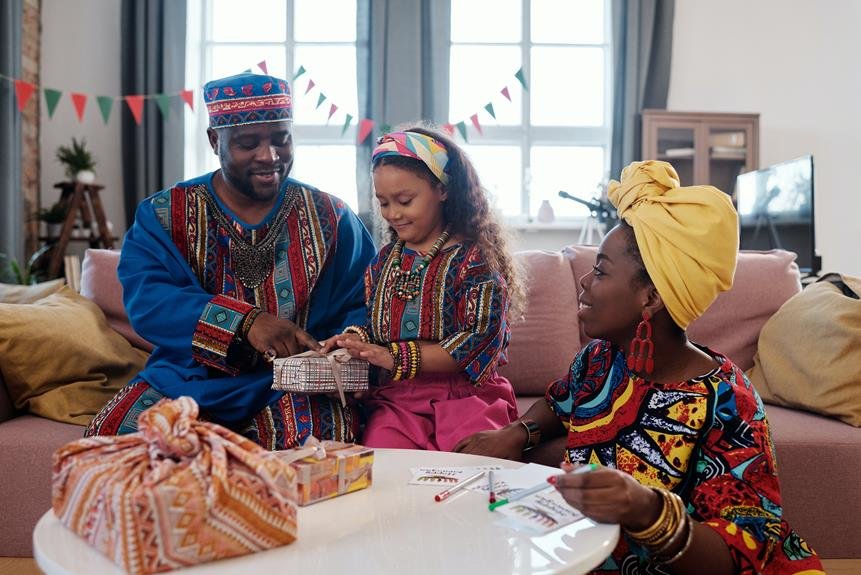Imagine stepping into a bustling market, the air heavy with the aroma of exotic spices and the vibrant colors of intricate textiles catching your eye. As you navigate through the crowd, you come across a stall filled with beautifully crafted gifts, each one representing a different culture and tradition. In a world that is increasingly interconnected, it is important to navigate the delicate landscape of cultural sensitivity when it comes to gifting. How can we ensure that our gestures of goodwill and appreciation align with the traditions and customs of those we seek to honor? Join us as we explore the intricacies of cultural sensitivity in gifting and learn how to respectfully uphold cherished traditions.
Understanding Cultural Significance
Understanding the cultural significance of gifts is essential when it comes to respecting cultural sensitivity in gifting. Appreciating cultural diversity is key to navigating cross-cultural gift-giving challenges. Every culture has its own unique customs, traditions, and symbolism associated with gift-giving. By understanding and respecting these cultural nuances, you can ensure that your gifts are well-received and meaningful.
In many cultures, gifts are not just material objects, but rather a reflection of the relationship between the giver and the recipient. For example, in some Asian cultures, it is customary to present gifts with both hands as a sign of respect. Additionally, the type of gift and its symbolism may vary across cultures. For instance, while flowers are generally seen as a thoughtful gesture in Western cultures, certain flowers may have negative connotations in other cultures.
Navigating cross-cultural gift-giving challenges can be complex, but it is important to approach it with an open mind and a willingness to learn. Researching and understanding the cultural norms and traditions of the recipient's culture can help you choose an appropriate and meaningful gift. It is also important to consider the recipient's personal preferences and tastes when selecting a gift.
Researching Gift Traditions
To further explore the nuances of cultural sensitivity in gifting, it is crucial to delve into the practice of researching gift traditions. Understanding the cultural gift exchange customs and symbolism in gift giving traditions is essential in order to show respect and avoid any unintentional offense.
When researching gift traditions, it is important to consider the specific culture or community you are interested in. Each culture may have its own unique customs and traditions when it comes to giving and receiving gifts. By studying these traditions, you can gain insight into the significance of certain gifts and the appropriate etiquette surrounding gift giving.
Symbolism plays a significant role in gift giving traditions. Gifts are often chosen based on their symbolic meaning, representing certain values, beliefs, or emotions. For example, in some cultures, the color of a gift wrapper holds symbolic importance, while in others, the type of gift itself may carry a special meaning. By understanding the symbolism behind gift giving, you can ensure that your gift is thoughtful and appropriate for the occasion.
Avoiding Stereotypes and Generalizations
Avoid making assumptions or generalizations about a culture when selecting a gift, as this can perpetuate stereotypes and potentially offend the recipient. It is crucial to approach gift-giving with sensitivity and respect, avoiding cultural appropriation while promoting cultural appreciation.
To avoid stereotypes and generalizations, take the time to educate yourself about the culture in question. Research its traditions, customs, and values. This will enable you to make an informed decision when selecting a gift, ensuring that it aligns with the recipient's cultural background.
Remember that each culture is diverse and complex, and individuals within a culture may have different preferences and tastes. Avoid assuming that a particular gift is universally representative of a culture. Instead, focus on the individual's interests and preferences, taking into account their unique personality and background.
It is also important to avoid appropriating elements of a culture when selecting a gift. Cultural appropriation involves adopting or borrowing elements of another culture without understanding or respecting their significance. This can be offensive and disrespectful. Instead, aim to promote cultural appreciation by selecting gifts that showcase and celebrate the rich heritage and traditions of a culture, without appropriating or misrepresenting them.
Personalizing Gifts With Cultural Sensitivity
When personalizing gifts with cultural sensitivity, it is important to consider the recipient's cultural background and incorporate elements that reflect their unique identity and traditions. Cultural symbolism plays a significant role in personalizing gifts as it allows you to choose items that hold special meaning within their culture. For example, if you are giving a gift to someone from a Chinese background, you could consider incorporating the color red, which symbolizes luck and good fortune in Chinese culture. Another thoughtful customization could be including symbols or motifs that represent their cultural heritage, such as a Celtic knot for someone of Irish descent or a hamsa hand for someone of Middle Eastern origin. By personalizing gifts in this way, you are not only showing that you value and respect their cultural background, but also that you have taken the time to learn about their traditions and incorporate them into your gift. This thoughtful approach goes beyond simply choosing an item based on stereotypes or generalizations, and instead, creates a meaningful and unique gift that truly reflects the recipient's cultural identity.
Practicing Respectful Gift Giving Etiquette
Considering cultural sensitivity in gifting also involves practicing respectful gift giving etiquette. One aspect of this is using appropriate gift wrapping techniques. Different cultures may have specific customs and traditions when it comes to wrapping gifts. For example, in some cultures, bright and colorful wrapping paper is preferred, while in others, more subdued and elegant wrapping styles are preferred. It is important to be aware of these cultural preferences and adapt your gift wrapping accordingly, as it shows respect for the recipient's traditions.
Another important aspect of respectful gift giving etiquette is expressing gratitude. When receiving a gift, it is customary in many cultures to express appreciation and gratitude towards the giver. This can be done through a heartfelt thank you note, a phone call, or even a small gesture of appreciation. By expressing gratitude, you not only acknowledge the effort and thought put into the gift, but you also strengthen the bond between you and the giver.
Conclusion
In conclusion, it is crucial to approach gifting with cultural sensitivity and respect for traditions. Understanding the cultural significance behind gift giving, researching specific gift traditions, and avoiding stereotypes or generalizations are essential steps to ensure inclusivity. Personalizing gifts with cultural sensitivity and practicing respectful gift-giving etiquette further enhance the experience. By embracing these principles, we can foster understanding, appreciation, and harmony among diverse cultures, making the act of giving gifts a meaningful and enriching experience for all.


